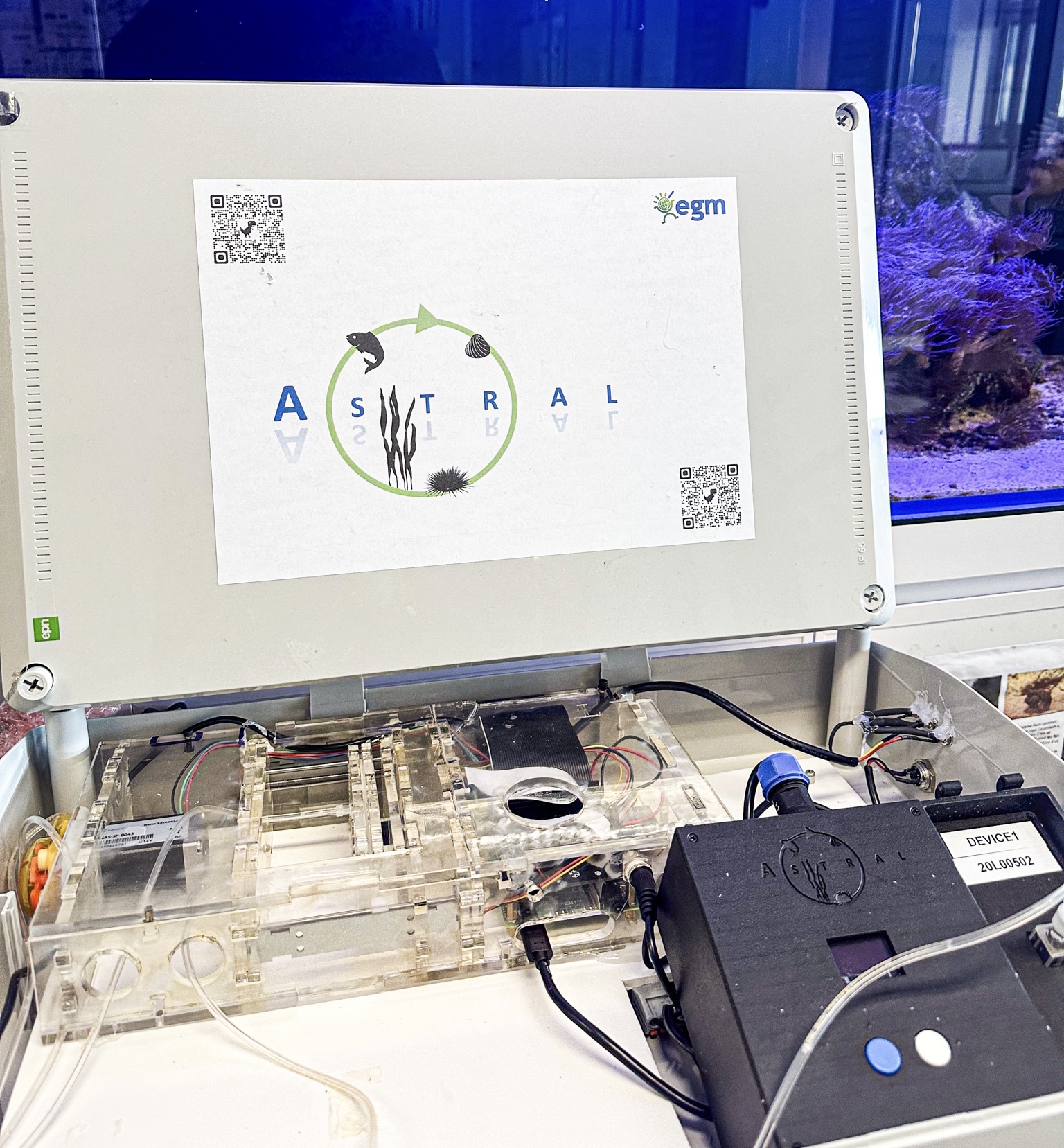An EU-funded research team is leveraging AI to monitor water quality and improve aquaculture production.
The EGM R&D team participated in the ASTRAL project financed by the European Union, to the tune of 7.93 million euros. This project aims to develop new aquaculture practices that are more respectful of the environment. EGM contributed to this project to develop an AI-powered sensor capable of automatically assessing water quality in aquaculture sites, in order to promote the growth and health of aquatic species, while promising to increase productivity and limit pollution.
This low-cost system implements Artificial Intelligence (AI) to interpret measurements to determine various physicochemical parameters indicating the presence of organic matter whose nature and quantity could pose a risk to the health of the ecosystem . The electronic card integrated into the sensor and developed by EGM, called EdgeSpot, makes this device adaptable to any type of water in almost any environment (e.g. seawater and freshwater), allowing real-time monitoring of any aquaculture site.
To complement the device’s monitoring service, EGM has also developed an autonomous water quality anomaly detection AI algorithm, which sends alerts whenever abnormal conditions are detected.
To assess the quantity and nature of organic matter contained in a water sample, the innovative technology uses a compact spectrometer based on electromechanical microsystems (MEMS) to characterize absorbance and fluorescence spectral responses in the visible and near ranges. infrared.
This data is then transmitted to a Planktoscope microfluidic blade taking images of the water sample and sending them to the Cloud for further analysis (e.g. Classification of phytoplankton species).
Such AI-powered sensor technology is affordable, transportable and fully automated. “The water quality sensor is an effective tool to avoid environmental risks and promote sustainable, consistent and high-quality production processes that operate within ecological limits.” – Elisa Ravagnan, ASTRAL project coordinator. This sensor is one of seven technologies developed by researchers contributing to ASTRAL, a 48-month project.
The head of the working group, Marcelo Pias, believes that the sensor could give the Atlantic community a head start in innovation by optimizing the use of natural resources in aquaculture while meeting the ambitions set out in the European Green Deal and United Nations Sustainable Development Goals 12 and 14.
Marcelo Pias also said: “If we continue on this trajectory, we will achieve a more resilient and sophisticated food ecosystem in the future by promising better productivity and responsiveness to market needs, thus contributing to the ambitions outlined in the European Green Deal”.
The project brought together academics, industry, high-tech experts, forward-looking policy makers and technology entrepreneurs. It is also the key project of Aquaculture Helix, a community within the Crowdhelix open innovation platform, which aims to foster collaboration within Crowdhelix’s community of specialists in aquaculture and related disciplines.
Michael Browne, CEO of Crowdhelix, said: “ASTRAL is indicative of the potential of Helix Aquaculture.” It brings together a team of multidisciplinary experts who collaboratively build impactful solutions such as this AI-powered sensor to automatically assess water quality.

